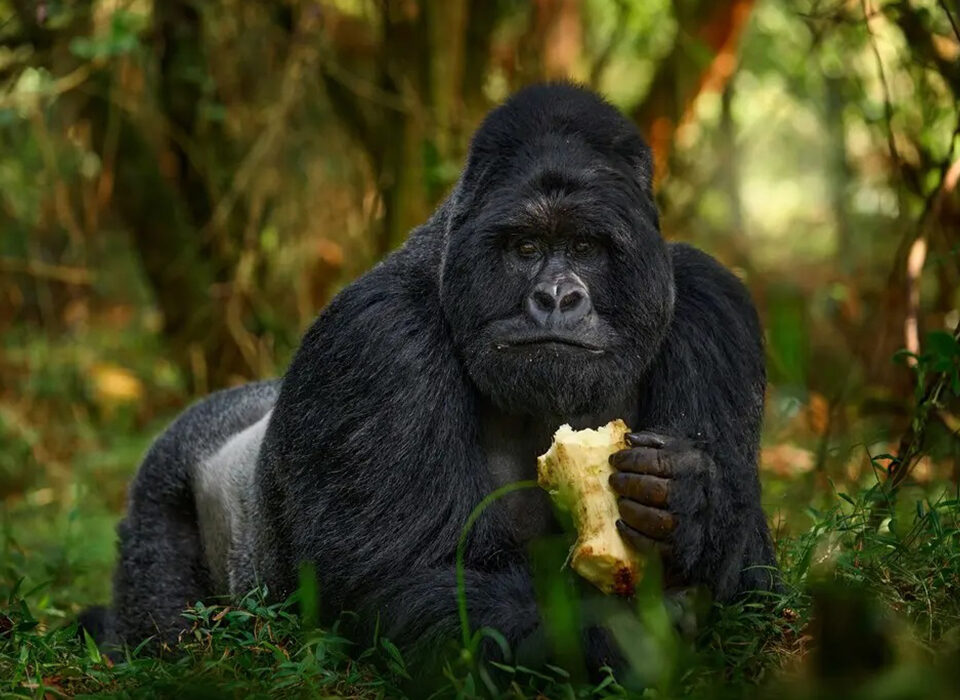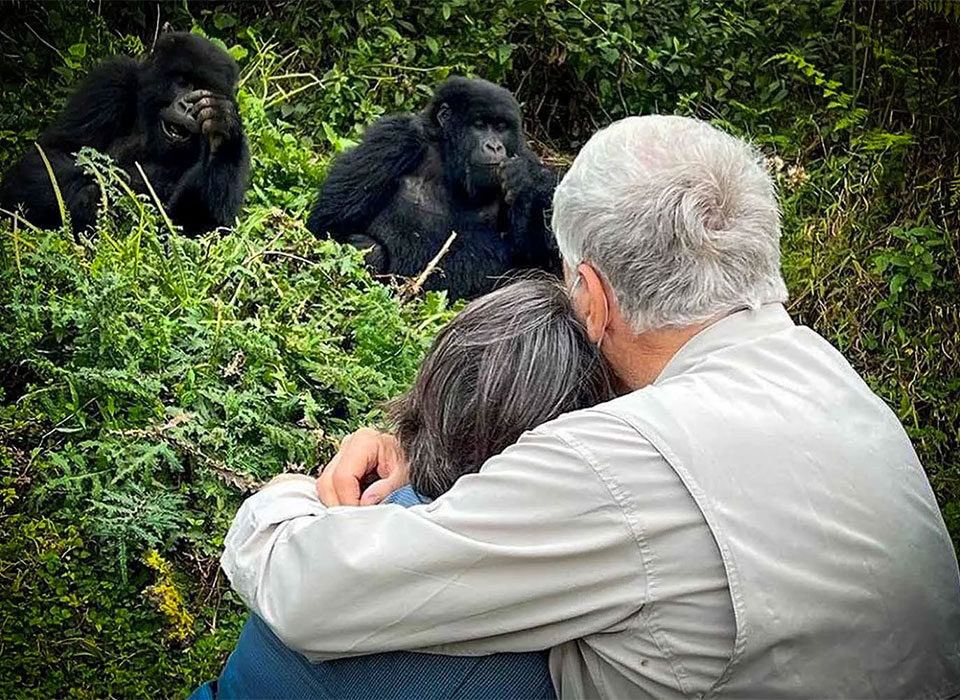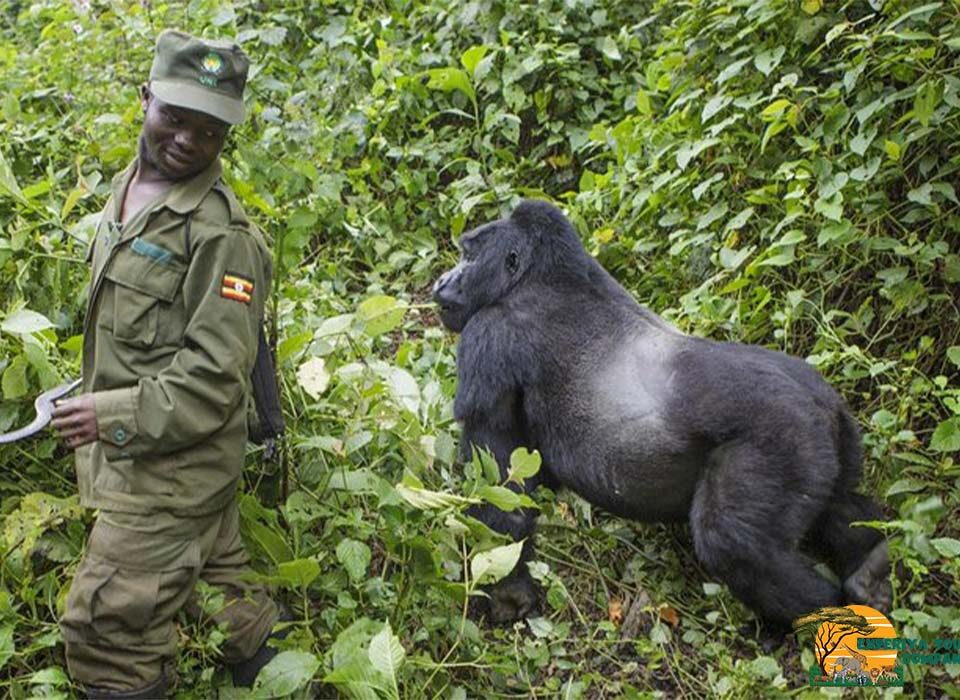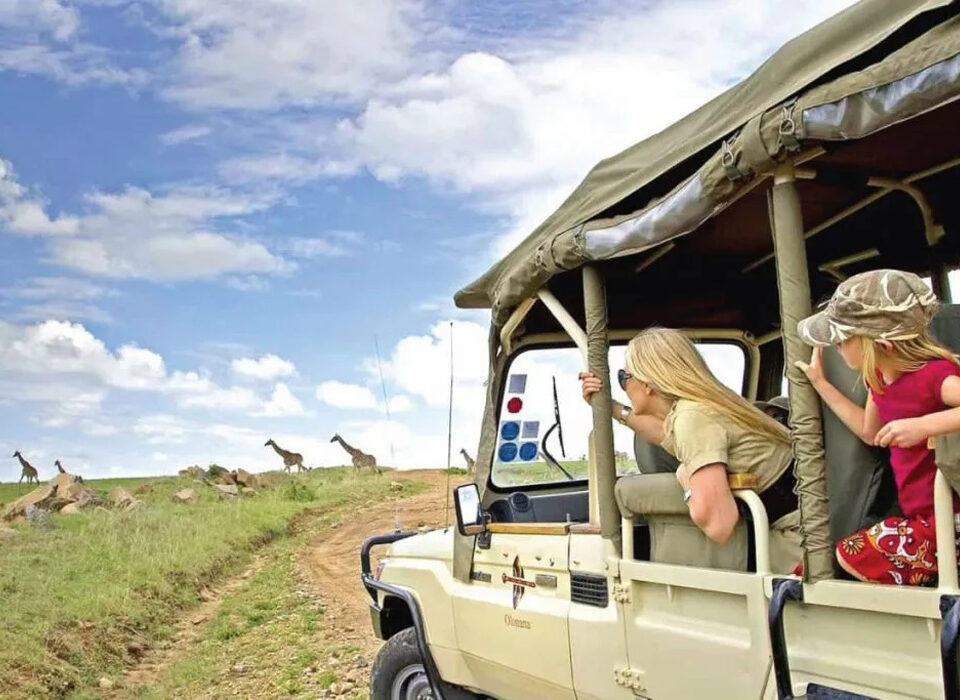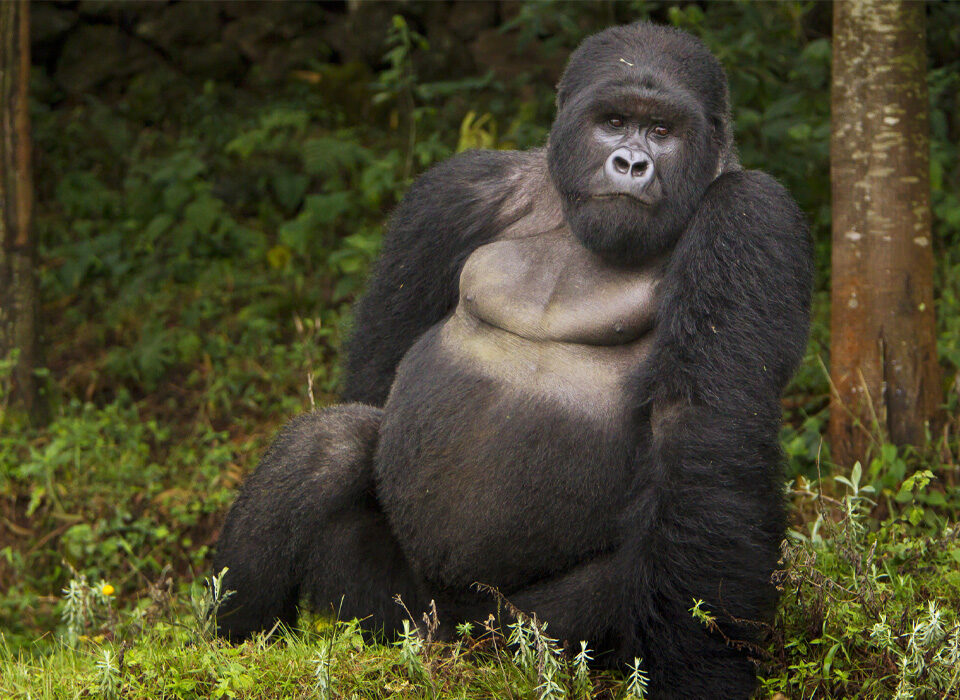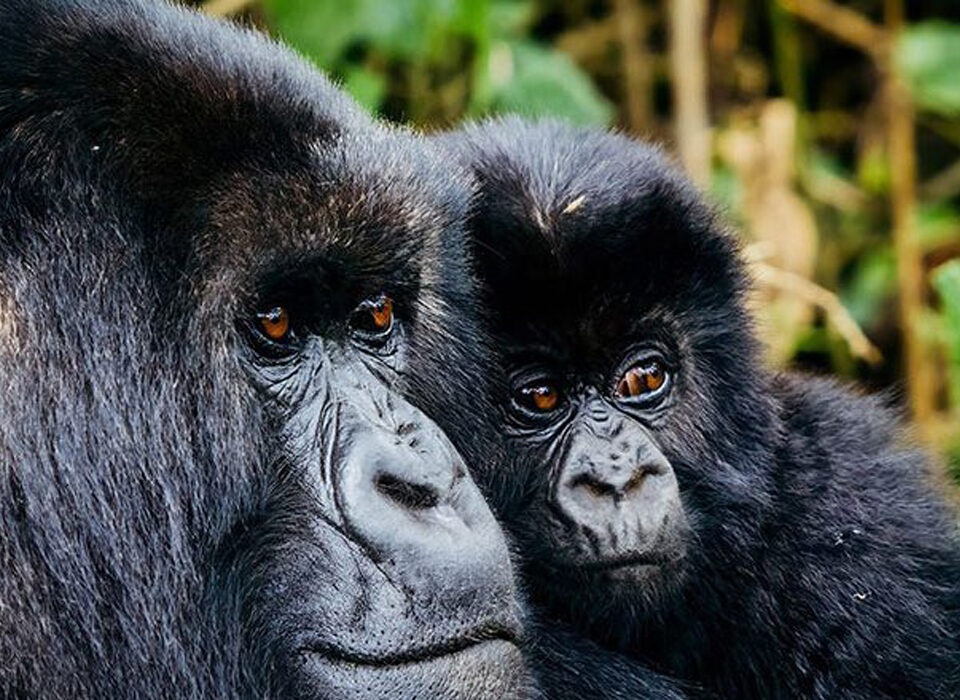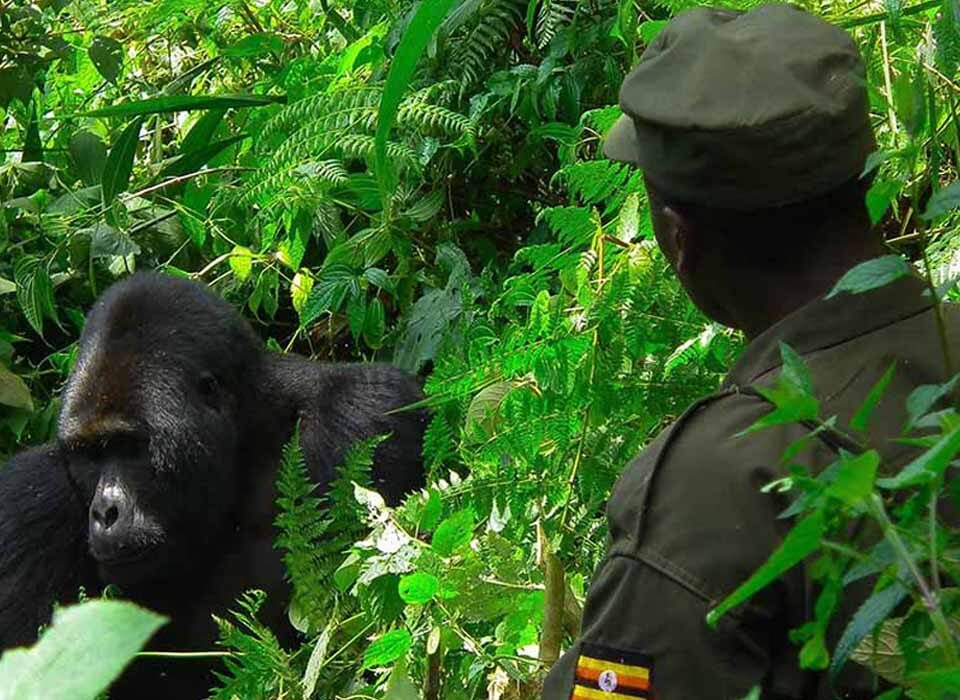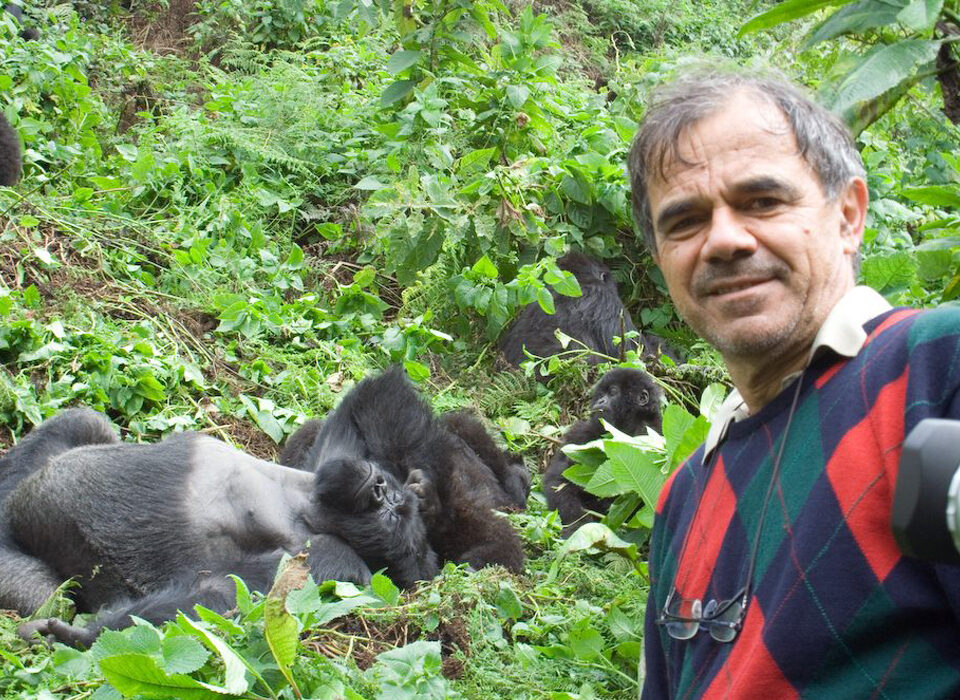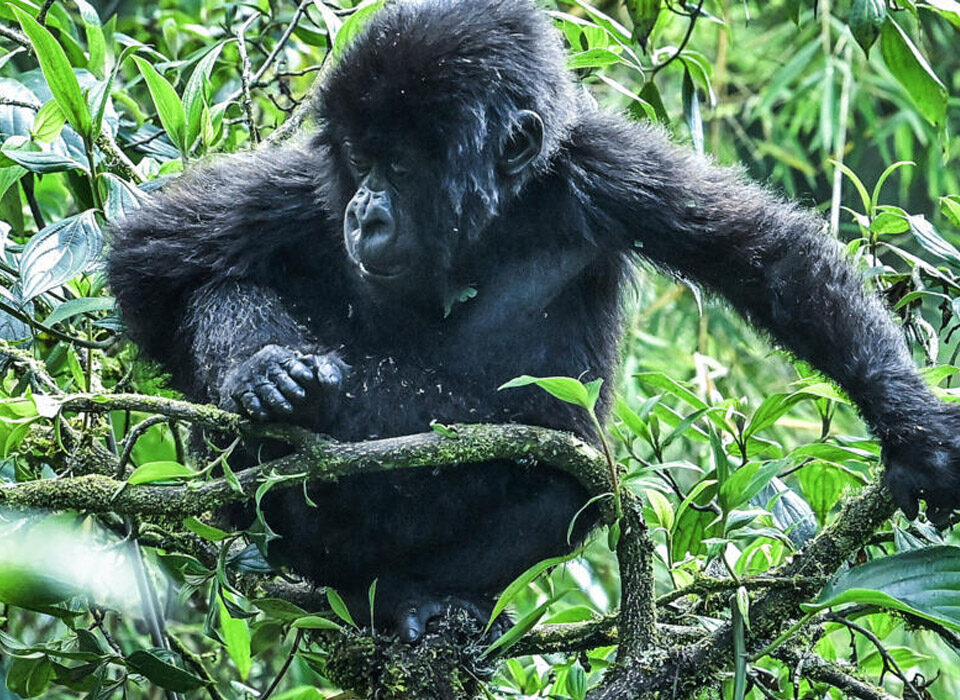- All
- 3-Day Safari Uganda
- Abseiling Adventure
- Accessible hiking
- Accessible Tourism
- Adrenaline Activities in Kenya
- Adventure & Nature
- Adventure Activities
- Adventure Safaris
- adventure tour
- Adventure Tour Uganda
- Adventure Tourism
- Adventure tourism Rwanda
- Adventure Tours
- Adventure Tours in Uganda
- Adventure Travel
- Adventure travel Africa
- Adventure Travel for Couples
- Adventure travel Rwanda
- Adventure Travel Uganda
- Affordable Accommodation
- Affordable Safari Stays
- Africa Beach Holidays
- Africa hiking tours
- Africa Mountains
- Africa Nature & Wildlife
- Africa Travel
- Africa Travel Tips
- Africa’s primate capital
- African adventure
- African Adventures
- African Birds
- African Birdwatching
- African Cuisine
- African Culture & Crafts
- African culture and travel
- African Elephants
- African Food and Cuisine
- African golden cat Uganda
- African Hospitality
- African Landscapes
- African Market Experiences
- African Predators
- African Rainforest Tours
- African rainforest trek
- African Reptiles
- African safari adventure
- African Safari Animals
- African Safari Destinations
- African Safari Experiences
- African Safari Holidays
- African safari honeymoon
- African Safari Itineraries
- African Safari Parks
- African Safari Seasons
- African Safari Travel
- African Safaris
- African Travel
- African Travel Destinations
- African Travel Experiences
- African Travel Guides
- African Wilderness
- African Wildlife
- African Wildlife Adventures
- African Wildlife Experiences
- African Wildlife Safaris
- African wildlife tour
- African Wildlife Travel
- Airports in Uganda
- Akagera National Park
- Akagera National Park birds
- Akagera National Park boat safari
- Akagera National Park safari
- Akagera National Park Safaris
- Albertine Rift Birding
- Albertine Rift birds
- Amboseli National Park
- Angling Adventures
- Animal Behavior
- Animal sanctuary Uganda
- Archaeological Sites
- Backpacking Uganda
- Balloon Safari Experiences
- Batwa Community Experiences
- Batwa cultural experience
- Batwa cultural tours
- Batwa Cultural Trail
- Batwa People
- Batwa Pygmies
- Batwa tribe Uganda
- Beach Destinations
- Beach Holidays
- Best Birding Destinations Uganda
- Best Birding Spots in Uganda
- Best Safari Experiences in Africa
- Best time for gorilla trekking
- Best Time for Safari Uganda
- Best Time for Uganda Safari
- Best Time to Travel
- Best Time to Visit
- Best time to visit Amboseli
- Best Time to Visit Kenya
- Best Time to Visit Rwanda
- Best Time to Visit Uganda
- Big Cat Safaris
- Big Cats
- Big Cats in Africa
- Big Cats of Africa
- Big Five
- Big Five Safari
- Big Five Safaris
- Big Five Safaris Uganda
- Big game viewing
- Bigodi Wetlands Sanctuary
- Bird Photography Uganda
- Bird Watching
- Bird Watching Bwindi
- Bird Watching in Rwanda
- Bird Watching in Uganda
- Bird watching Lake Victoria
- Bird watching Tanzania
- Bird Watching Tours
- Bird watching Uganda
- Birding in East Africa
- Birding in Uganda
- Birding Tours
- Birds of Prey
- Birdwatching
- Birdwatching & Birding
- Birdwatching Destinations
- Birdwatching Destinations Kenya
- Birdwatching in Africa
- Birdwatching in Kenya
- Birdwatching in Rwanda
- Birdwatching in Uganda
- Birdwatching Rwanda
- Birdwatching Safaris
- Birdwatching Tanzania
- birdwatching Uganda
- Bisoke Crater Lake
- Boat Cruising
- Boat Safaris
- Boat Safaris in Africa
- Boat Trips
- Botswana safari
- Bucket List Adventures
- Bucket List Experiences
- Budget Kenya Safari
- Budget Safaris Uganda
- Budget stays Lake Mutanda
- Budget Travel
- Budongo Forest Chimpanzee Trekking
- Budongo Forest Reserve
- Buhanga Eco-Park
- Buhoma gorilla trekking
- Bungee Jumping in Kenya
- Bwindi cycling trails
- Bwindi gorilla trekking
- Bwindi gorilla trekking sectors
- Bwindi Impenetrable Forest
- Bwindi Impenetrable Forest National Park
- Bwindi Impenetrable National Park
- Bwindi Sectors Guide
- Camping safaris Uganda
- camping Uganda
- Canopy Walks
- Cheetahs vs Leopards
- chimpanzee habituation
- Chimpanzee Sanctuaries
- Chimpanzee Sanctuary
- Chimpanzee Tracking
- Chimpanzee Tracking Safaris
- Chimpanzee tracking Uganda
- Chimpanzee Trekking
- Chimpanzee Trekking Add-ons
- Chimpanzee Trekking and Sanctuaries
- Chimpanzee trekking in Rwanda
- Chimpanzee Trekking in Uganda
- Chimpanzee trekking Semuliki
- Chimpanzee Trekking Uganda
- City Guides
- City Tours
- Coffee Tourism
- Colonial architecture
- Colonial Architecture in Uganda
- community conservancies Kenya
- Community Development
- Community Development Projects
- Community Experiences
- Community Tourism
- Community Tourism Experiences
- Community Tourism Rwanda
- Community Tourism Uganda
- community visits
- Community-Based Conservation
- Community-Based Tourism
- Congo gorilla trekking
- Congo River Attractions
- Congo Safaris
- Congo travel
- Congo-Nile Trail
- Conservation
- Conservation & Eco-Tourism
- Conservation and Community Tourism
- Conservation and Eco-Tourism
- Conservation and Wildlife Education
- conservation projects Kenya
- Conservation Tourism
- Conservation Tours
- Conservation Travel
- Cooking class Uganda
- Couple safari adventure
- Crater lakes in Uganda
- Crater Lakes of Uganda
- crater lakes Uganda
- Crested Crane
- Crocodiles
- Cross-Border Tours
- Culinary Tourism
- Cultural & Heritage Travel
- Cultural & Scenic Trails
- Cultural & Wildlife Tours
- Cultural and Heritage Tourism
- Cultural and Historical Travel
- Cultural and Nature Tours
- Cultural Encounters
- Cultural Etiquette
- cultural experience
- Cultural Experiences
- Cultural Experiences in Uganda
- Cultural Heritage
- Cultural Heritage Africa
- Cultural Heritage Sites
- cultural preservation
- Cultural Safaris
- Cultural Tourism
- Cultural Tourism Rwanda
- Cultural Tourism Uganda
- Cultural Tours
- Cultural Tours in Rwanda
- Cultural Tours in Tanzania
- Cultural Tours in Uganda
- Cultural tours Karamoja
- Cultural tours Uganda
- Cultural Travel Tanzania
- Cultural Villages & Community Tours
- Culture & Heritage
- Cycling Adventures
- cycling in Rwanda
- Cycling Tours Kenya
- Dangerous Animals
- Day Tours from Kigali
- Democratic Republic of Congo safety
- Democratic Republic of Congo Tourism
- Desert Expeditions
- Desert Travel Africa
- Desert Wildlife Africa
- Dian Fossey
- Dian Fossey grave
- Diani Beach
- disabled outdoor activities
- Disease Prevention
- Domestic flights Uganda
- East Africa adventure
- East Africa Adventures
- East Africa Birdwatching
- East Africa Eco Lodges
- East Africa Safari Experiences
- East Africa Safari Holidays
- East Africa Safaris
- East Africa Tourism
- East Africa Travel
- East Africa Travel Guides
- East Africa Travel Information
- East Africa wildlife safaris
- East Africa Wildlife Tours
- Echuya Forest Reserve
- Eco Tourism
- Eco Travel Uganda
- Eco-Friendly Safari Tours
- Eco-Friendly Travel
- Eco-lodges Rwanda
- Eco-Tourism
- Eco-Tourism & Conservation
- Eco-Tourism & Sustainability
- Eco-Tourism and Conservation
- Eco-Tourism in Africa
- Eco-Tourism in Rwanda
- Eco-Tourism in Uganda
- eco-tourism Uganda
- Ecotourism Destinations
- Educational Safaris
- Educational Tourism Rwanda
- Educational Tours
- Educational Travel
- Educational wildlife tours
- Elderly Travel
- Elephant Safaris
- Elephant Tours
- Empakaai Crater
- Endangered Species
- Entebbe Expressway
- Entebbe International Airport
- Entebbe safaris
- Entebbe Tourism
- Entebbe Zoo
- Ethical Tourism
- Ethical wildlife photography
- Evolution and Science
- Exclusive Safaris Kenya
- Experiya Tour Company
- Experiya Tour Company Experiences
- Experiya Tour Company Safaris
- Explore East Africa
- Extreme Sports in Uganda
- Family Adventures Africa
- Family Safari Packages
- Family Safari Travel
- Family Safaris
- Family Safaris in Kenya
- Family Travel
- Family Travel Africa
- Family-Friendly Activities
- Family-Friendly Travel
- Family-friendly wildlife activities
- Female Travel Advice
- Festivals & Traditions
- first-time visitors Kenya
- Fishing Adventures
- Flying Safaris
- Folklore & Traditions
- Food & Drink Tourism
- Forest Adventures in Uganda
- Forest and Nature Walks
- Forest bathing
- Forest Birding Adventures
- Forest Birding Africa
- Forest Wildlife
- Fort Portal
- Fort Portal lakes
- Fort Portal Uganda
- Freshwater Ecosystems
- Freshwater Fishing
- freshwater lake
- Game Drive
- Game Drive Guide
- Game Drive Sightings
- Game drives
- Game Drives for Kids
- Game drives Uganda
- Genocide memorial
- Genocide Memorial Kigali
- Genocide Sites
- Geological Wonders
- Geothermal Attractions
- Giant forest hog safari
- giraffes in Uganda
- Glamping
- Glamping Rwanda
- Golden Monkey Habituation
- Golden Monkey Tracking
- Golden Monkey Trekking
- golden monkeys
- Gombe National Park
- Gorilla & Chimpanzee Trekking
- Gorilla and Monkey Trekking
- Gorilla Behavior
- Gorilla Conservation
- Gorilla Diet & Feeding Habits
- Gorilla Families
- Gorilla Habitat Preservation
- Gorilla habitat Rwanda
- Gorilla Habituation
- Gorilla habituation experience
- Gorilla Permit Payment
- Gorilla permits
- Gorilla Permits & Regulations
- gorilla population
- Gorilla Safari Packages Uganda
- Gorilla Trekking
- Gorilla trekking accommodations
- Gorilla Trekking Add-ons
- gorilla trekking Congo
- Gorilla Trekking Experiences
- Gorilla Trekking Gear
- Gorilla Trekking Health
- Gorilla Trekking in Africa
- Gorilla Trekking in Uganda
- Gorilla Trekking Permits Uganda
- Gorilla Trekking Preparation
- Gorilla trekking rules
- Gorilla Trekking Rwanda
- Gorilla Trekking Safaris
- Gorilla trekking safety Rwanda
- Gorilla Trekking Tips & Preparation
- Gorilla trekking tips Uganda
- Gorilla Trekking Tours
- Gorilla Trekking Uganda
- Gorilla Viewing
- Great Migration
- Great Migration Safaris
- Great Rift Valley Tours
- Great Wildebeest Migration
- Grey Crowned Cranes
- Griffin Falls Camp
- Group Safaris in Kenya
- Group Travel Experiences
- Guided Nature Walks
- Habitat Destruction
- Helicopter Transfers
- Hell’s Gate National Park
- Heritage & History
- heritage travel
- Hidden Safari Destinations
- High Altitude Trekking
- Highland Lakes
- Hiking
- Hiking & Nature Trails
- Hiking & Trekking
- Hiking Adventures
- Hiking and Adventure Tours
- Hiking and Trekking
- Hiking in Rwanda
- Hiking in uganda
- hiking trails Rwanda
- Historical & Archaeological Sites
- Historical & Cultural Tours in Rwanda
- Historical Sites in Rwanda
- Historical Sites in Uganda
- History & Culture of Rwanda
- History & Heritage
- Honeymoon packages Uganda
- honeymoon safari
- Horse Riding Safaris
- horseback safari Uganda
- Horseback Safaris
- Hot Air Balloon
- Hot Air Balloon Experiences
- Hot air balloon safari
- Hot Air Balloon Safaris
- Hot Springs in Uganda
- Hotels & Accommodation
- Hotels in Uganda
- Human-Wildlife Conflict
- Hyena behavior
- Indigenous Cultures
- Industrial Tourism
- irunga Mountains
- Ishasha tree-climbing lions
- Island Tours
- Islands of Lake Kivu
- Islands of Lake Victoria
- Jinja Activities
- Jinja Day Trips
- Kahuzi-Biega gorillas
- Kahuzi-Biega National Park
- Kalinzu Forest
- Kalinzu Forest chimpanzees
- Kampala Attractions
- Kampala City Tours
- Kampala Travel
- Kampala Travel Highlights
- Kasoga Community Village
- Katwe Explosion Crater Lake
- Kazinga Channel
- Kazinga Channel Boat Cruise
- Kazinga Channel Cruise
- Kenya Cultural Experiences
- Kenya Culture
- Kenya Safari
- Kenya Safari Packing List
- Kenya Safari Tips
- Kenya Safari Tours
- Kenya Safaris
- Kenya safety
- Kenya tourism
- Kenya Tours
- Kenya Travel
- Kenya Travel Experiences
- Kenya travel guide
- Kenya travel tips
- Kenya visa information
- Kenya Wildlife
- Kenya Wildlife Safaris
- Kenya Wildlife Tourism
- Kenyan Wildlife
- Kibale Forest birdwatching
- Kibale Forest National Park
- Kibale National Park
- Kibale National Park Activities
- Kibuye Attractions
- Kidepo National Park
- Kidepo Valley
- Kidepo Valley camping
- Kidepo Valley National Park
- Kidepo Valley Safaris
- Kigali Attractions
- Kigali City Experiences
- Kigali City Tour
- Kigali City Tours
- Kigali food experiences
- Kigali Horse Riding
- Kigali International Airport
- Kigali museums
- Kigali Nightlife
- Kigali Outdoor Activities
- Kigali Restaurants
- Kigali shopping
- Kigali to Bwindi Travel
- Kigali travel guide
- Kisiizi Falls
- Kisoro Travel Guide
- Kitenge fashion
- Lake Bunyonyi
- Lake Bunyonyi honeymoon
- Lake Bunyonyi Tours
- Lake George activities
- Lake Ihema Safari
- Lake Kivu
- Lake Kivu activities
- Lake Kivu cruises
- Lake Kivu Experiences
- Lake Mburo National Park
- Lake Mburo village experience
- Lake Mutanda
- Lake Mutanda accommodation
- Lake Mutanda canoeing
- Lake Nakuru
- Lake Ruhondo
- Lake victoria
- Lake Victoria Adventures
- Lake Victoria Islands
- Lake Victoria wildlife
- lakeside resorts
- Landscape & Scenery
- Landscape Photography
- Language and Tourism
- Language for tourists
- Leopard tracking
- Lion tracking
- Lion Watching
- Local food experiences
- Local Restaurants
- Luxury & Budget Safari Options
- Luxury & Eco Safaris
- Luxury & Mid-Range Lodges
- Luxury & Mid-Range Safaris
- Luxury Beach Resorts
- Luxury Gorilla Trekking
- Luxury Lodges
- Luxury Safaris
- Luxury Travel
- Luxury Travel Experiences
- Maasai Cultural Tours
- Maasai Culture
- Maasai Mara Conservancies
- Mabamba Swamp
- Mabamba Swamp Tours
- Mabamba Wetland
- Mahale Mountains National Park
- Maramagambo Forest
- masai mara
- Masai Mara Group Safari
- Masai Mara National Reserve
- Masai Mara Safari
- Masai Mara Safaris
- Memorials & Museums
- Mgahinga Gorilla National Park
- Mgahinga National Park
- Mid-Range Safari Lodges
- Midrange Accommodation in Uganda
- Migratory Birds
- Migratory Birds in Africa
- Migratory Birds Kenya
- migratory birds Rwanda
- monkey tracking
- Mount Elgon
- Mount Elgon hiking
- Mount Elgon National Park
- Mount Elgon Region
- Mount Kigali hike
- Mount Kilimanjaro
- Mount Kilimanjaro Views
- Mount Morungole Hike
- Mount Nyiragongo Hike
- Mount Rwenzori
- Mountain Adventures
- Mountain Biking Uganda
- Mountain Climbing
- Mountain Climbing Uganda
- Mountain Elgon National Park
- Mountain gorilla experience
- Mountain gorilla experiences
- Mountain Gorilla Tours
- Mountain Gorilla Trekking
- Mountain Gorillas
- mountain gorillas Congo
- Mountain Hiking
- Mountain Trekking
- Mountains & Landscapes
- Mubwindi Swamp Trail
- Multi-Country Safari Tours
- Multi-day backpacking Uganda
- Murchison Falls
- Murchison Falls camping
- Murchison Falls National Park
- Murchison Falls travel tips
- Musanze Tourism
- Museums & Heritage
- Museums in Rwanda
- Music and Dance in Uganda
- Muslim-Friendly Tours
- Nairobi Attractions
- Nairobi Safari Departures
- National Park Wildlife
- National Parks
- National Parks & Forest Reserves
- National Parks and Reserves
- National Parks in Tanzania
- National Parks in Uganda
- National Parks of Uganda
- National Parks Uganda
- Natural Attractions
- Natural Habitats
- Nature & Adventure
- Nature & Adventure Travel
- Nature & Conservation
- Nature & Conservation Tours
- Nature & Ecosystems
- Nature & Environment
- Nature & Landscapes
- Nature & Wilderness Tours
- Nature & Wildlife
- Nature & Wildlife Experiences
- Nature & Wildlife Observation
- Nature Adventure
- Nature and Adventure Tours Uganda
- Nature and Conservation
- Nature and Culture Uganda
- Nature and Landscapes
- Nature and Outdoor Experiences
- Nature and Trekking Tours
- Nature and wellness
- Nature and Wildlife
- Nature and Wildlife Experiences
- Nature and Wildlife Facts
- Nature and Wildlife Tours
- Nature and Wildlife Travel
- Nature Conservation
- Nature Experiences
- Nature Photography
- Nature retreats Kisoro
- Nature Tours Kenya
- Nature Walks & Hiking
- Nature Walks and Hiking
- Nature Walks Uganda
- News
- Ngamba Island
- Ngorongoro Conservation Area
- Ngorongoro Crater
- Ngorongoro Crater safari
- Night Game Drives
- Nile River
- Nile River Activities
- Nile River Adventures
- Nile River Jinja
- Nkuringo gorilla trekking
- Nkuringo sector
- Nkuringo Sector Experiences
- Northern Rwanda Adventures
- Northern Uganda Safaris
- Nubian giraffes
- Nyakasura Caves
- Nyamirambo Women Center
- Nyiragongo Crater Lake
- Nyiragongo Safety Tips
- Nyiragongo Volcano
- Nyungwe chimpanzee trekking
- Nyungwe Forest
- Nyungwe forest adventure
- Nyungwe Forest cycling
- Nyungwe Forest experiences
- Nyungwe forest hiking
- Nyungwe Forest National Park
- Nyungwe National Park
- Nyungwe National Park birds
- Nyungwe National Park Tours
- Off-Road Experiences Uganda
- Off-the-Beaten-Path Safaris
- Off-the-Beaten-Path Travel
- Outdoor Accommodation
- Outdoor Activities
- Outdoor Adventures in Uganda
- Overland safaris Uganda
- Pangolin Conservation
- Papyrus Wetlands
- Photographic Safaris
- Photography
- Photography Destinations
- Photography Safaris
- photography tips
- Photography Tips & Guides
- Pian Upe Game Reserve
- Pilgrimage & Spiritual Travel
- Poaching and Habitat Loss
- Practical Travel Tips
- Predator Sightings
- Predator Tracking
- Primate & Wildlife Encounters
- Primate Conservation
- Primate Experiences
- Primate Facts
- Primate Safaris
- Primate safaris Uganda
- Primate Social Structure
- Primate Tours
- Primate Trekking
- Primate Trekking in Uganda
- Primate Trekking Tours
- Primate Trekking Uganda
- Primate Watching
- Primates
- Primates & Wildlife Safaris
- Primates of East Africa
- Private Game Drives
- queen Elizabeth National Park
- Queen Elizabeth National Park Safaris
- Rainforest Adventures
- Rainforest Experiences
- Rare mammals in Uganda
- Religious and Heritage Sites Rwanda
- Religious Tourism in Uganda
- Reptile Safari
- responsible tourism
- Responsible Travel
- Rhino Conservation
- Rhino Tracking
- Rhino Tracking Safaris
- River Nile
- River Nile Attractions
- Road Trip Adventures
- Road Trip Stopovers
- Romantic activities Uganda
- Romantic Getaways
- Romantic travel
- rope course
- Royal Mile Budongo Forest
- Ruhengeri Attractions
- Ruhija bird watching
- Ruhija gorilla trekking
- Rushaga sector
- Rushaga Sector Bwindi
- Rusinga Island
- Rusizi tourism
- Rwanda 2026 travel tips
- Rwanda Accommodation
- Rwanda Airports
- Rwanda Albertine Rift endemics
- Rwanda and Uganda Safaris
- Rwanda birding tours
- Rwanda birding trips
- Rwanda boat cruises
- Rwanda City Tours
- Rwanda Cuisine
- Rwanda Cultural Tours
- Rwanda Culture
- Rwanda culture and customs
- Rwanda cycling tours
- Rwanda Genocide Memorial Sites
- Rwanda Gorilla Tours
- Rwanda gorilla trekking
- Rwanda gorillas
- Rwanda Guesthouses
- Rwanda History
- Rwanda History and Education
- Rwanda Honeymoon
- Rwanda Horseback Riding
- Rwanda itinerary planning
- Rwanda money and payments
- Rwanda Museums
- Rwanda National Parks
- Rwanda nature
- Rwanda Nature Tours
- Rwanda Nature Trails
- Rwanda nature travel
- Rwanda public transport safety
- Rwanda Road Trips
- Rwanda Safari
- Rwanda Safari Activities
- Rwanda safari destinations
- Rwanda safari experiences
- Rwanda Safari Extensions
- Rwanda Safari Guide
- Rwanda Safaris
- Rwanda sightseeing
- Rwanda to Bwindi safari
- Rwanda to Uganda Gorilla Trek
- Rwanda to Uganda Tours
- Rwanda tourism
- Rwanda Tours
- Rwanda Travel
- Rwanda Travel & Adventure
- Rwanda Travel 2026
- Rwanda Travel Destinations
- Rwanda Travel Guide
- Rwanda Travel Guides
- Rwanda travel safety
- Rwanda Travel Tips
- Rwanda Uganda border crossing
- Rwanda Visa and Passport
- Rwanda visa requirements
- Rwanda Wildlife Adventures
- Rwanda Wildlife Guide
- Rwanda wildlife tourism
- Rwanda Wildlife Tours
- Rwandan Cuisine
- Rwandan Heritage & Traditions
- Rwenzori Mountains
- Rwenzori Mountains Trekking
- safari accommodation
- Safari Accommodation Uganda
- Safari Adventures
- Safari destinations
- Safari Essentials
- Safari Experiences
- Safari Fitness
- Safari Gateways
- Safari Gear & Preparation
- Safari Guide Tips
- Safari Holidays
- Safari Itineraries
- Safari Lodges
- Safari Lodges and Camps
- safari lodges Uganda
- safari packing
- Safari Packing Guide
- Safari Photography
- Safari Planning
- Safari Planning for Families
- Safari Planning Guides
- Safari Planning Tips
- Safari Preparation
- Safari Tips
- Safari Tips and Guides
- safari tour
- safari tourism
- Safari travel
- Safari Travel Guides
- Safari Travel Tips for Groups
- safari vehicle
- Safari Wildlife Experiences
- Salt mining in Uganda
- Savanna Ecosystems
- savanna park
- Savannah Animals
- School Trips Uganda
- Seasonal Travel in Kenya
- Seasonal Travel Tips
- Selous Game Reserve safari
- Semuliki National Park
- Serengeti National Park safari
- Shoebill Tracking
- Shopping Markets
- Silverback Gorillas
- Silverback Gorillas Uganda
- Silverbacks
- Sipi Falls
- Sky Trail Monument
- Small Group Travel
- Solo Female Travel
- Solo Travel
- South Rwanda Destinations
- Souvenirs & Crafts
- sport fishing
- Spotted hyenas
- Summer Holiday Safaris
- Sunset Boat Safari
- Sustainable Lodges
- Sustainable Tourism
- Sustainable Tourism Uganda
- Sustainable Travel
- Sustainable travel Uganda
- Tailor-made tours
- Tanzania Cultural Tours
- Tanzania Nature & Wildlife
- Tanzania Safaris
- Tanzania Tourist Attractions
- Tanzania Travel
- Tanzania Travel Guide
- Tanzania Wildlife Parks
- Tanzania wildlife safaris
- Tea Plantations Uganda
- Tea Tourism
- The Uganda Equator
- Things to Do in Jinja
- Things to do in Kigali
- Tourism in Rwanda
- Tourism in uganda
- Tourist guide Africa
- Tourist Information
- Traditional African Dishes
- Traditional Dishes
- Traditional Safari
- Traditional Ugandan cuisine
- Travel & Safari
- Travel and adventure
- Travel and Culture
- Travel and Tourism Uganda
- Travel Experiences
- Travel Guide
- Travel Health
- Travel in East Africa
- Travel in Uganda
- Travel Insurance
- Travel News
- Travel Planning
- Travel Safety
- Travel Tips
- Travel Tips & Guides
- Travel Tips Uganda
- Travel to Rwanda
- Travel Uganda
- Travel with Children
- Tree-Climbing Lions
- Trekking Assistance
- Trekking Tips & Equipment
- Tropical rainforest
- Tropical Rainforest Birding
- Uganda & Rwanda Safari
- Uganda Accommodation
- Uganda adventure
- Uganda Adventure Safaris
- Uganda Adventure Tours
- Uganda Airports and Transport
- Uganda animals
- Uganda Attractions
- Uganda Birding
- Uganda Birding Safaris
- Uganda birding tours
- Uganda climate
- Uganda community tourism
- Uganda Cultural Heritage
- Uganda Cultural Sites
- Uganda Cultural Tours
- Uganda Day Trips & Short Tours
- Uganda Destinations
- Uganda Experiences
- Uganda family holidays
- Uganda Fishing
- Uganda Food Tours
- Uganda Forest Reserves
- Uganda Game Drives
- Uganda geological sites
- Uganda gorilla permits
- Uganda Gorilla Safaris
- Uganda Gorilla Trekking
- Uganda Gorilla Trekking Safari
- Uganda Handcrafts
- Uganda hidden gems
- Uganda Hiking Adventures
- Uganda honeymoon destinations
- Uganda Lakes
- Uganda National Parks
- Uganda National Parks Tours
- Uganda Nature & Forest Safaris
- Uganda Nature and Wildlife
- Uganda nature holidays
- Uganda nature tours
- Uganda nature walks
- Uganda photography safari
- Uganda rainforest
- Uganda Safari
- Uganda Safari Accommodation
- Uganda Safari Activities
- Uganda Safari Attractions
- Uganda Safari Destinations
- Uganda Safari Experiences
- Uganda Safari Guide
- Uganda Safari Health
- Uganda Safari Lodges
- Uganda Safari Packages
- Uganda Safari Tour
- Uganda Safaris
- Uganda scenic landscapes
- Uganda Tanzania safari
- Uganda Tour Operators
- Uganda Tourism
- Uganda Tourism Information
- Uganda Tourist Attractions
- Uganda Travel
- Uganda Travel Activities
- Uganda travel destinations
- Uganda travel experiences
- Uganda Travel Guide
- Uganda Travel Guides
- Uganda trekking tours
- Uganda weather
- Uganda Wildlife
- Uganda Wildlife Adventure
- Uganda Wildlife Adventures
- Uganda Wildlife Authority
- Uganda Wildlife Authority (UWA)
- Uganda Wildlife Education Centre
- Uganda wildlife reserves
- Uganda Wildlife Safari
- Uganda Wildlife Safaris
- Uganda Wildlife Tours
- Ugandan Food and Cuisine
- Ugandan Traditions
- Ugandan Wetlands
- Umusambi Conservancy
- Uncategorized
- UNESCO Heritage Sites
- Unique Animal Behavior
- Unique Safari Activities
- Urban Exploration
- Urban Travel Africa
- Vaccinations for Uganda
- Village experiences Rwanda
- Village experiences Uganda
- Village Homestays
- Village Life Experiences
- Village walks Uganda
- Virunga Conservation Area
- Virunga gorilla families
- Virunga Mountains
- Virunga National Park
- Visas & Immigration
- Visit Congo
- Visit Kenya
- Visit Kisoro
- Visit Rwanda
- Visit Tanzania
- Visit Uganda
- Volcanic Adventures
- Volcanic lakes in Africa
- volcano hiking
- Volcano Trekking
- Volcano trekking Rwanda
- Volcano Views
- Volcanoes & Mountains
- Volcanoes National Park
- Volcanoes National Park Activities
- Volcanoes National Park Add-ons
- Volcanoes National Park lodges
- Volcanoes National Park Tours
- Volunteer Programs
- Volunteering in Uganda
- Walking Sticks for Trekking
- Water Activities
- water adventures
- Water Sports in Uganda
- Waterfall Hikes
- Waterfalls in Uganda
- weather patterns
- Wedding Anniversary
- Wedding anniversary holiday
- Weekend Getaway Tours Uganda
- Weekend Getaways in Uganda
- western Uganda travel
- Wet season safari
- wheelchair hiking
- White Water Rafting
- White Water Rafting Safaris
- Wildebeest Migration
- Wildlife
- Wildlife & Bird Watching
- Wildlife & Nature
- Wildlife & Nature Reserves
- Wildlife & Nature Tours
- Wildlife & Nature Travel
- Wildlife Accommodation
- Wildlife Adventure
- Wildlife Adventures
- Wildlife Adventures in Kenya
- Wildlife and Birding Tours
- Wildlife and Birding Uganda
- Wildlife and Culture Safaris
- Wildlife and Nature
- Wildlife Conservation
- Wildlife Conservation Experiences
- wildlife conservation Kenya
- Wildlife conservation Uganda
- Wildlife cycling Uganda
- Wildlife Destinations
- Wildlife Education
- Wildlife Encounters
- Wildlife Experiences
- Wildlife Experiences in Uganda
- Wildlife Exploration
- Wildlife Filming
- Wildlife Filming Permits Uganda
- Wildlife Migration in Africa
- Wildlife Photography
- Wildlife Protection
- Wildlife Research and Education
- Wildlife Reserves in Uganda
- Wildlife Safari
- Wildlife safari Africa
- Wildlife Safari Uganda
- Wildlife Safaris
- Wildlife Safaris in Africa
- Wildlife Safaris in Rwanda
- Wildlife Safaris in Uganda
- Wildlife safaris Uganda
- Wildlife Safety
- Wildlife Tourism
- Wildlife Tours
- Wildlife Tours Africa
- wildlife trekking
- Wildlife Viewing Tips
- Wildlife Watching
- winter break safari
- Women Empowerment
- Women Empowerment Tourism
- Women in Conservation
- Women Travel Safety
- Zanzibar Travel
- zebras
- zipline
- Ziplining
- Ziplining Uganda
- Ziwa Rhino Sanctuary

